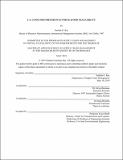U.S. Consumer Preferences for Seafood Traceability
Author(s)
Ray, Sunitha
DownloadRay_2019.pdf (4.555Mb)
Metadata
Show full item recordAbstract
Americans are the second largest consumers of seafood globally but more than 90% of the seafood consumed is imported, causing the seafood supply chain to be long, opaque, and complex. This gives rise to several concerns such as intentional mislabeling, species substitution, illegal unreported and unregulated (IUU) fishing, unsustainable fishing practices and human rights violations in the seafood industry. Despite recent government mandates and initiatives such as the Seafood Import Monitoring Program (SIMP) as well as advocacy from industry and supply chain players, end-to-end information flows from harvest location to the table, remains a challenge. This is mainly due to lack of common harmonized Key Data Elements (KDEs), lack of interoperability, lack of global adoption of standards, and heterogenous systems. Traceability appears to provide a mechanism to alleviate these concerns through enabling information flows triggered by three major drivers of seafood traceability: producers, consumers and regulators. Of the three, consumers are perceived to have the least influence on traceability.
This paper investigates whether consumer preferences can drive seafood traceability. It also explores specific consumer characteristics and preferences for whole-chain traceability through direct survey, interviews with industry stakeholders and review of existing literature. The survey results show that consumer preferences play a lesser role as compared to other drivers, due to several exogenous reasons. However, further analysis shows that high propensity for traceability preferences may be influenced by high income levels, frequency of consumption and domicile habitats closer to urban and coastal areas in the U.S. Steps towards establishing an integrated, collaborative and inclusive approach to standardization of KDEs may help move the seafood traceability agenda forward.
Date issued
2019Keywords
Sustainability